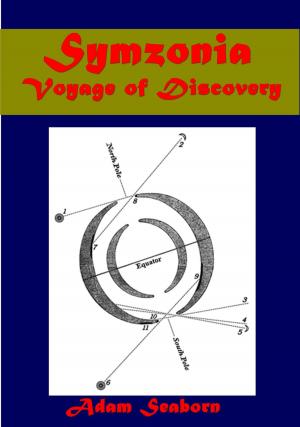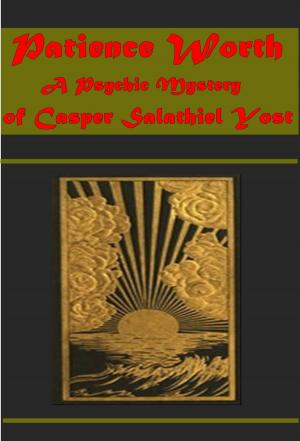| Author: | Paul S. Reinsch | ISBN: | 1230002283548 |
| Publisher: | ANEB Publishing | Publication: | April 20, 2018 |
| Imprint: | Language: | English |
| Author: | Paul S. Reinsch |
| ISBN: | 1230002283548 |
| Publisher: | ANEB Publishing |
| Publication: | April 20, 2018 |
| Imprint: | |
| Language: | English |
When we ask ourselves what are the elements which may constitute China's contribution to the future civilization of the world, what are the characteristics which render her civilization significant to all of us, we enter upon a subject that would in itself require a volume merely to present in outline. From the point of view of social action, there is the widely diffused sense of popular equity which has enabled Chinese society for these many centuries to govern itself, to maintain property rights, personal honour and dignity without recourse to written law or set tribunals, chiefly through an informal enforcement by society itself acting through many agencies, of that underlying sense of proportion and rightness which lives in the hearts of the people. From the point of view of economic life, China presents the picture of a society in which work has not been robbed of its joy, in which the satisfaction of seeing the product of industry grow in the hands of the craftsman still forms the chief reward of a labour performed with patient toil but without heartbreaking drudgery. From the point of view of social organization, China forms an extremely intricate organism in which the specific relationship between definite individuals counts far more than any general principles or ideas. Loyalty, piety, a sense of fitness give meaning to the ceremonial of Chinese social life, which is more than etiquette as a mere ornament of social intercourse in that it bodies forth in visible form as every-day observances, the relations and duties upon which society rests. From the point of view of art, China stands for a refinement of quality which attests the loving devotion of generations to the idea of a perfect product; in the representative arts, calmness of perception has enabled the Chinese to set a model for the artistic reproduction of the environments of human life. In their conception of policy and world position, the Chinese people have ever shown a readiness to base any claim to ascendancy upon inherent excellence and virtue. They have not imposed upon their neighbours any artificial authority, though they have proudly received the homage and admiration due their noble culture.
When we ask ourselves what are the elements which may constitute China's contribution to the future civilization of the world, what are the characteristics which render her civilization significant to all of us, we enter upon a subject that would in itself require a volume merely to present in outline. From the point of view of social action, there is the widely diffused sense of popular equity which has enabled Chinese society for these many centuries to govern itself, to maintain property rights, personal honour and dignity without recourse to written law or set tribunals, chiefly through an informal enforcement by society itself acting through many agencies, of that underlying sense of proportion and rightness which lives in the hearts of the people. From the point of view of economic life, China presents the picture of a society in which work has not been robbed of its joy, in which the satisfaction of seeing the product of industry grow in the hands of the craftsman still forms the chief reward of a labour performed with patient toil but without heartbreaking drudgery. From the point of view of social organization, China forms an extremely intricate organism in which the specific relationship between definite individuals counts far more than any general principles or ideas. Loyalty, piety, a sense of fitness give meaning to the ceremonial of Chinese social life, which is more than etiquette as a mere ornament of social intercourse in that it bodies forth in visible form as every-day observances, the relations and duties upon which society rests. From the point of view of art, China stands for a refinement of quality which attests the loving devotion of generations to the idea of a perfect product; in the representative arts, calmness of perception has enabled the Chinese to set a model for the artistic reproduction of the environments of human life. In their conception of policy and world position, the Chinese people have ever shown a readiness to base any claim to ascendancy upon inherent excellence and virtue. They have not imposed upon their neighbours any artificial authority, though they have proudly received the homage and admiration due their noble culture.















